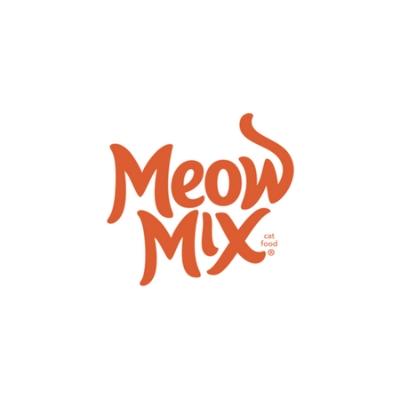Feline Infectious Peritonitis (FIP)
Introduction
Feline infectious peritonitis (FIP) is a progressive, systemic and sometimes fatal disease of domestic and wild cats. It is most commonly seen in young cats that live in multi-cat households.
Causes & Prevention
Causes of FIP
Feline infectious peritonitis is caused by organisms in the coronavirus group. It is spread between cats that are in close and continuous physical contact – primarily through contact with viral particles in fecal and oral secretions from infected cats. Stress and genetics are thought to contribute to susceptibility to FIP. Most infected animals are asymptomatic and show no outward signs of disease, although they remain carriers of the virus and can still infect other cats. Those cats that do become ill typically show signs of mild upper respiratory tract infection, such as ocular (eye) discharge and/or a runny nose. They also tend to develop a build up of fluid in their abdominal cavity. Occasionally, the feline coronavirus spontaneously mutates and can become lethal. Currently, there is no way to distinguish between the viral infections that cause asymptomatic disease and those that are potentially fatal.
Prevention of FIP
The main mode of transmission appears to be from asymptomatic carrier queens to their kittens and from fecal-oral or saliva contact. Early weaning may help break the cycle of transmission. Routine hygiene to disinfect cages, water and food bowls and the environment, is very helpful to inactivate viral particles and reduce reproduction. Keeping cats indoors also can help prevent infection with this virus. A modified live intranasal FIP vaccine is available and reportedly provides protection to 50%–75% of the cats that receive it. Because this vaccine is not highly effective, it is not currently recommended for routine use in low-risk cats. Anything that increases stress can lessen a cat's immunity and make it more susceptible to infection by FIP or other infectious agents. Good nutrition, parasite control and a safe, warm environment are also very important.
Special Notes
FIP is difficult to diagnose, control and prevent. When the feline coronavirus infects catteries, the consequences can be catastrophic. Even though a vaccine against FIP is available, most veterinarians do not recommend routine vaccination against FIP. Vaccination is, however, recommended for cats that commonly go outdoors and have contact with other free-roaming cats. Vaccination is also recommended for cats that come from households with an FIP-positive cat.
Symptoms & Signs
The majority of cats that are infected with feline coronavirus do not develop clinical signs of disease. However, those that do tend to have a poor prognosis. When clinical disease develops, it is called feline infectious peritonitis, or FIP.
Symptoms of FIP
Cats with FIP often show no symptoms of illness. When signs do appear, they can vary widely and usually are nonspecific. Symptoms of FIP can include:
Insidious onset of persistent fever that is unresponsive to antibiotic treatment
Lack of appetite (inappetance, anorexia)
Weight loss (gradual)
Diarrhea
Vomiting
Lethargy
Depression
Weakness
Stunted growth
Dull hair coat
Dehydration
Abdominal distention or enlargement (ascites; fluid effusion; seen with the wet form of FIP)
Labored breathing (wet form)
Inflammation of the eye (dry form)
There are two clinical presentations of FIP, called the wet (effusive) form and the dry (non-effusive) form. They cause different clinical signs in affected cats, but the treatment options and prognosis are unfortunately equally poor. The wet form of FIP causes an accumulation of fluid in the cat's chest and/or abdominal cavity, which can lead to respiratory difficulty and a distinctive pot-bellied appearance. The dry form affects the same parts of the body, but it does not cause fluid accumulation. The dry form may eventually progress to the wet form, if the patient lives long enough.
Cats at Increased Risk
FIP is primarily a disease of young cats, between 6 months and 2 years of age. Cats over 14 years of age also seem to be predisposed to developing FIP. Males are more commonly affected than are females, and purebred cats are at an increased risk of developing this disease – especially Asian breeds, such as the Birman and Himalayan. Animals that are malnourished or suffering from other illnesses are also more susceptible to contracting clinical FIP. FIP is most common in catteries, animal shelters, boarding facilities and multi-cat households.
Diagnosis & Tests
Feline infections peritonitis (FIP) can be difficult and frustrating to diagnose, because there are no specific, reliable tests for this disease. Frequently, the attending veterinarian will make the diagnosis based upon the cat's observable symptoms, together with the results of blood tests, radiographs (X-rays) and possibly tissue biopsies.
How FIP is Diagnosed
Feline infectious peritonitis is often suspected based upon a cat's presenting clinical signs, which typically include fever, ocular (eye) and nasal discharge, weakness, lethargy, loss of appetite, weight loss and depression. Labored breathing, dehydration, vomiting, diarrhea and neurological abnormalities are also commonly present. Routine blood work, including a complete blood count and a serum biochemistry profile, can reveal the elevated liver enzymes and abnormal blood protein levels that typically are present in cats with FIP. Thoracic (chest) and abdominal radiographs may disclose an abnormal accumulation of fluid in those body cavities. This is called "effusion," or "ascites." Fluid aspirated from the chest or abdomen of cats with the wet form of this disease can be analyzed by a number of different laboratory tests. Blood samples from cats with extremely elevated blood protein (globulin) levels can be submitted for serum protein electrophoresis. Cerebrospinal fluid samples also can be analyzed for protein content, which typically is elevated in affected cats. However, the only definitive way to diagnose FIP is to take a surgical biopsy of an affected organ – often the intestine – and to analyze it microscopically by a process called histopathology. Other organs commonly affected by FIP are the liver, eyes, brain, kidney and pancreas. Most cats with the dry form of this illness eventually develop eye or brain symptoms, or both.
Special Notes
Unfortunately, both the wet and dry forms of feline infectious peritonitis are inevitably fatal. Cats with the wet form of FIP usually die within a matter of months after the onset of observable symptoms. Cats with the dry form of this disease usually have a longer, more chronic illness, but it also invariably ends in death. There is no effective treatment for FIP at this time, although this disease is the subject of a great deal of focused research. Euthanasia is usually recommended to relieve the suffering of affected animals.
Treatment Options
Feline infectious peritonitis is an incurable illness. The goals of treatment are to manage the affected cat's comfort and try to ensure a pain-free quality of life for as long as possible.
Treatment Options
Fortunately, the feline coronavirus can be killed by household disinfectants, such as a bleach-water combination in a 1:32 part dilution. Multi-cat environments should be cleaned and disinfected regularly. Once a cat develops observable signs of FIP – either the wet or the dry form – it is virtually certain that he will die from the disease. The wet form is "worse," in the sense that affected cats may only have a month or two left to live once they are diagnosed. Cats with the dry form of FIP may have another year or so with a good quality of life.
The comfort and quality of life of affected animals may be enhanced by certain medications and supplements, such as prednisone, cyclophosphamide, interferon, low-dose aspirin and vitamin C. Good nutritional and environmental support is also essential to support cats with FIP.
Prognosis
The prognosis for cats with clinical symptoms of FIP is poor. Cats with the wet form typically have a more guarded prognosis than do those with the dry form, but both types are ultimately fatal.
















































